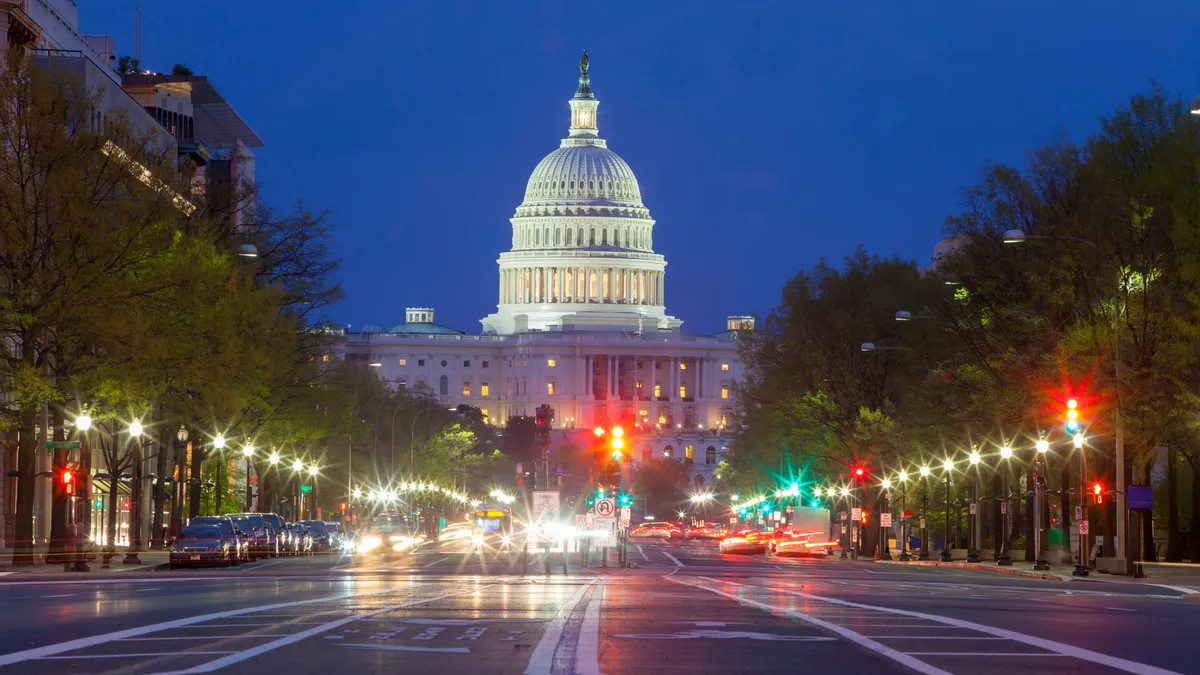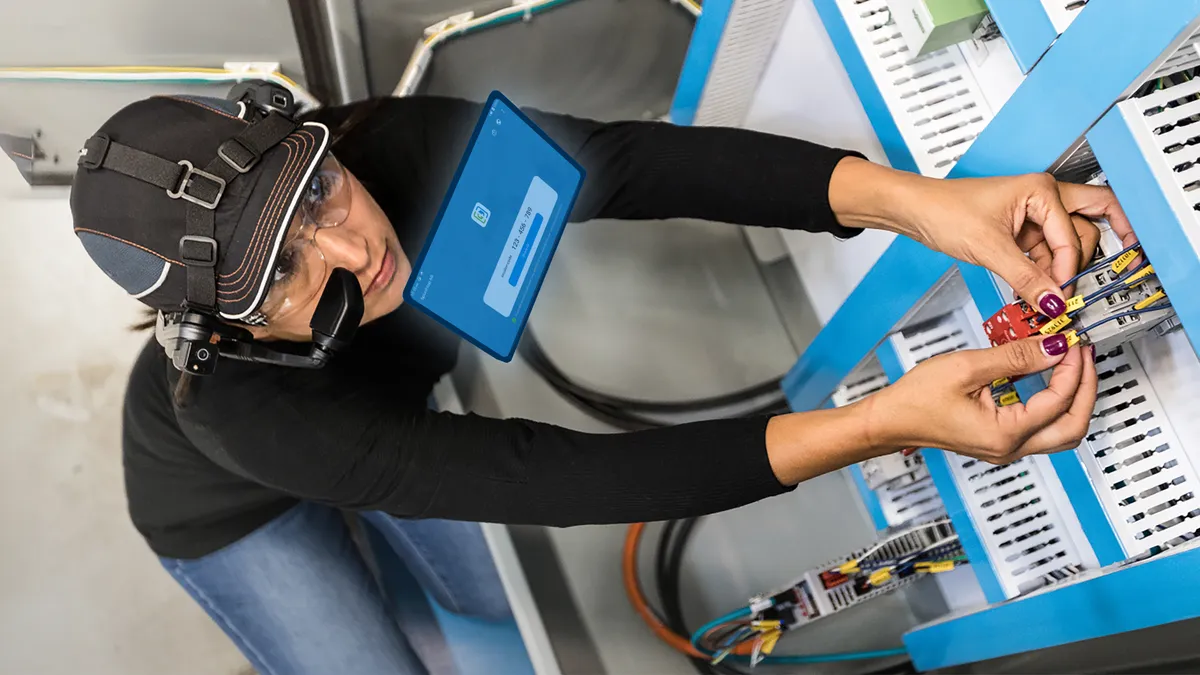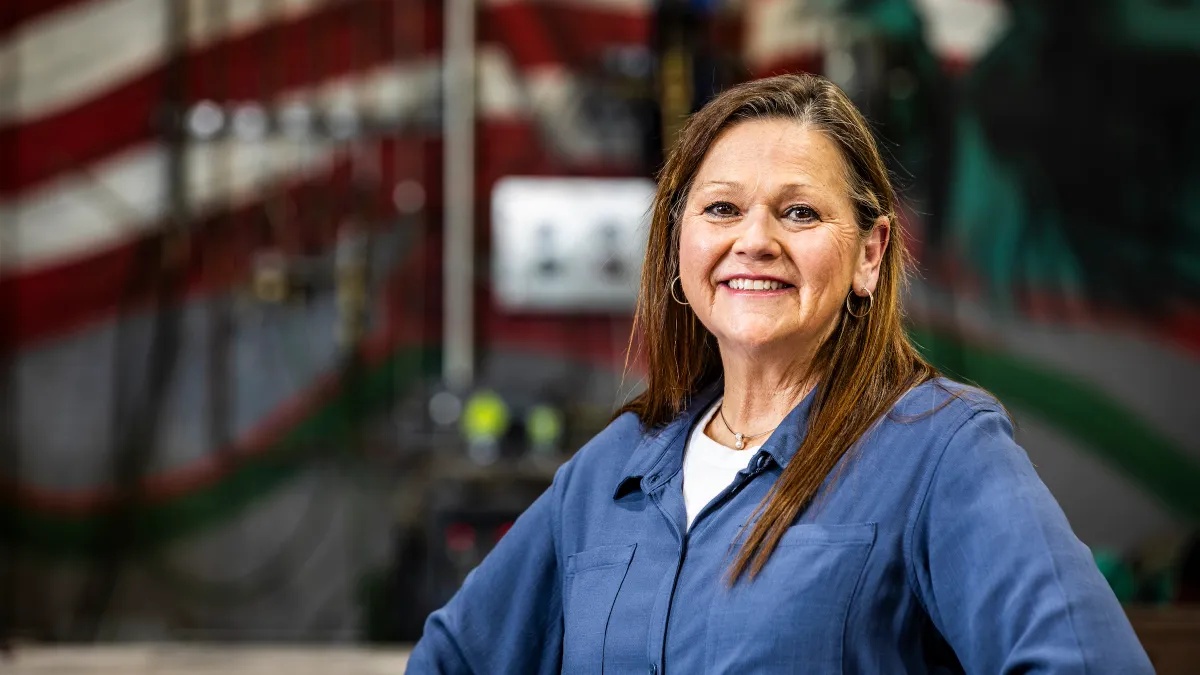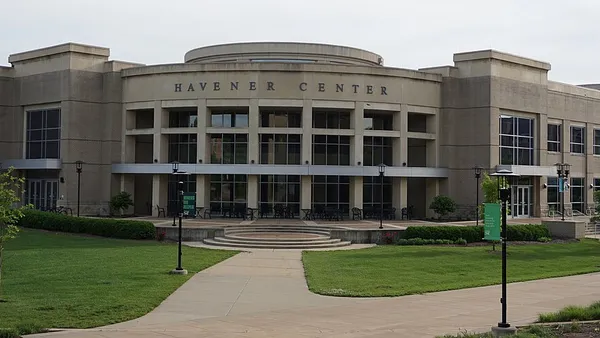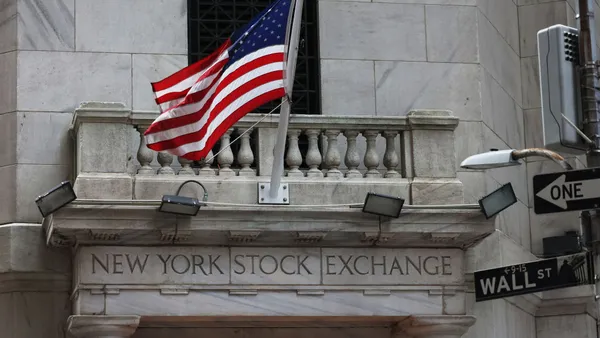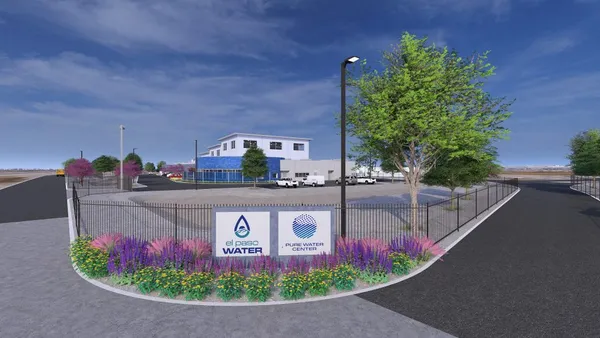Dive Brief:
-
A Democratic congressman from Connecticut has proposed raising $1.8 trillion over the next 10 years by instituting a $49-per-ton tax on carbon emissions from coal, oil and natural gas, according to the Hartford Courant.
-
Rep. John Larson said he will officially introduce the America Wins Act to Congress when lawmakers reconvene in September after the August recess. Larson said the plan would pay for $1 trillion in infrastructure improvements, with the remaining $800 billion going back to consumers as tax rebates to offset the resulting higher energy prices.
-
Larson's bill, which is still being drafted, would also set aside $50 billion over 10 years to help coal miners find jobs outside the coal industry and to help fund coal miner pensions, LMT Online reported.
Dive Insight:
With specifics for President Donald Trump's $1 trillion infrastructure plan — particularly how it will be funded — having yet to be revealed, lawmakers like Larson are offering up their own plans to finance work on the nation's aging highways, bridges and tunnels.
In March, Rep. Peter DeFazio (D-OR) proposed an increase to the federal gas tax, an idea that is gaining support. The tax, which feeds the Highway Trust Fund and finances state infrastructure projects all over the U.S., has not been raised in more than 20 years. An additional one-cent-per-gallon annual increase, DeFazio said, could increase the HTF account by $17 billion each year.
Transportation Secretary Elaine Chao has also indicated that raising the federal gas tax is on the table as a way to fund infrastructure projects. Federal lawmakers are mulling other ways to raise cash, such as per-mile driver fees and new sales and tire taxes.
The I-95 Corridor Coalition, a group of East Coast transportation agencies, will start a pilot program next year in Pennsylvania and Delaware that will help determine the viability of a per-mile driver charge as either a supplement to or a replacement for the federal gas tax. A voluntary per-mile tax system is already used in Oregon. Motorists there can pay 1.5 cents per mile instead of the state gas tax.
One reason federal and state agencies are considering a per-mile charge is that they view it as a way to get electric and hybrid car owners, who need less gas and therefore pay lower gas taxes, to finance their share of highway maintenance costs.


